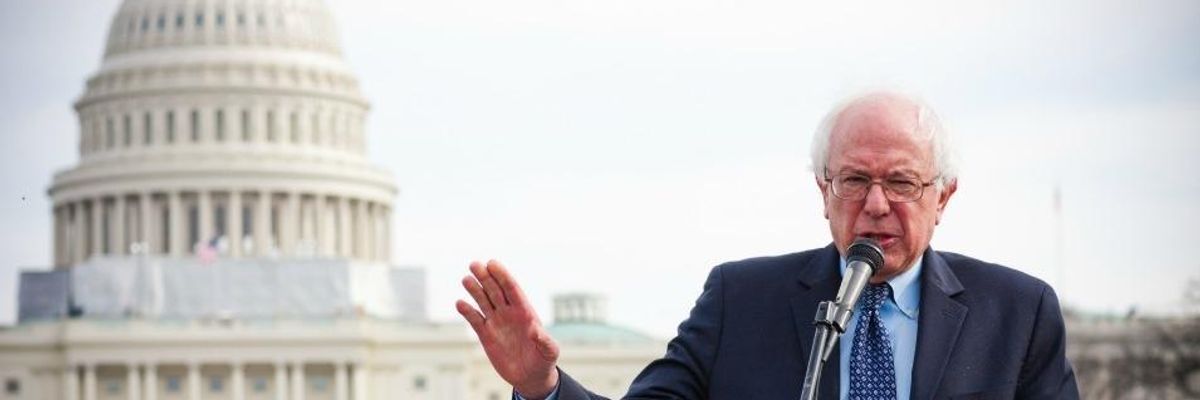The vaunted Washington Post factchecking team is once again applying its microscope to Sen. Bernie Sanders. This time (10/2/17), they're taking a look at this assertion:
Bernie Sanders Claims the World's Six Wealthiest People Have as Much Wealth as Half the Global Population
An awkward thing about checking that particular fact: One of the world's six wealthiest people is the owner of the paper doing the factchecking. Or as the Post coyly (and parenthetically) puts it, "(Among the names on the list: Jeffrey P. Bezos, the chief executive of Amazon and owner of the Washington Post.)"
So it's noteworthy that in analyzing this remark about the boss, the Post's Nicole Lewis doesn't say that Sanders is wrong, exactly. Instead, she says that "he has made a habit of relying on simplified statistics that are provocative but do little to illuminate the complexities of the US economic system." Or as she says of a similar statement Sanders made about US (not global) wealth, "While technically correct, the condensed soundbite lacked nuance about wealth accumulation and debt in the United States."
If you're going to be badmouthing the owner of the Washington Post, in other words, you better have plenty of nuance and illuminate those complexities.
The factcheck starts out by acknowledging that, yes, Sanders' facts check out: The six richest people, according to Forbes, have net wealth of $462.6 billion. (The Post's owner is No. 2 on the list, with $80.8 billion, which is more than 300 times what he paid for the Post.) That's more than $409 billion, the net wealth owned by the 3.75 billion people who make up the least wealthy half of the world's population, according to Oxfam (1/17), using numbers from Credit Suisse (11/16).
"Since the wealthiest six people own $462.6 billion and the bottom 50 percent own $409 billion, the case is closed, right?" writes Lewis. Actually, yes--at this point, a genuine factchecker's job is done, having ascertained that the claim being examined accurately conveys information that derives from a reliable source.
Despite all this, Sanders' team stands by Oxfam's methodology," the Post concludes--even after the paper painstakingly explained that Oxfam failed to ignore debt, and that it counted the value of Bill Gates' Microsoft shares even though he owns relatively few cows or sheep. And so the Post awards "three Pinocchios" to Sanders--a rating that indicates "significant factual error and/or obvious contradictions."
Lewis goes on to explain that
wealth is a fundamentally misleading measure if you're comparing countries across the globe.... Without considering how debt is measured and held, what kinds of assets each group owns, or how the currencies are converted, it's hard to make heads or tails of what wealth actually means, with respect to people's daily lives around the globe.
It almost sounds like the newspaper owned by the second-wealthiest person in the world doesn't want people talking about how much the extremely rich own compared to the rest of us.

